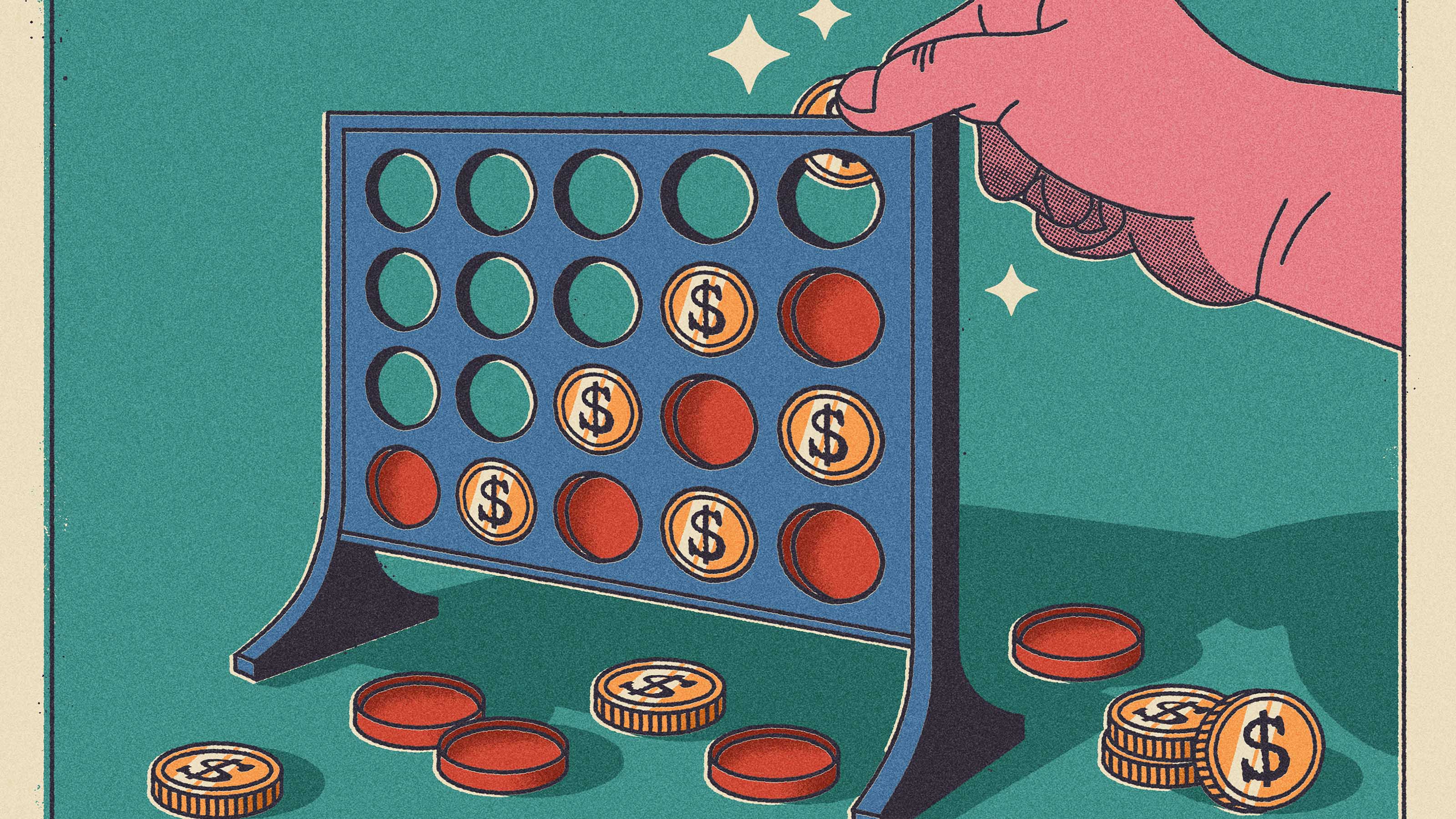How I Evaluate Stock Picks From Others
Some ideas are so far outside my comfort zone that acting on them would surely give me a stomachache.

Profit and prosper with the best of Kiplinger's advice on investing, taxes, retirement, personal finance and much more. Delivered daily. Enter your email in the box and click Sign Me Up.
You are now subscribed
Your newsletter sign-up was successful
Want to add more newsletters?

Delivered daily
Kiplinger Today
Profit and prosper with the best of Kiplinger's advice on investing, taxes, retirement, personal finance and much more delivered daily. Smart money moves start here.

Sent five days a week
Kiplinger A Step Ahead
Get practical help to make better financial decisions in your everyday life, from spending to savings on top deals.

Delivered daily
Kiplinger Closing Bell
Get today's biggest financial and investing headlines delivered to your inbox every day the U.S. stock market is open.

Sent twice a week
Kiplinger Adviser Intel
Financial pros across the country share best practices and fresh tactics to preserve and grow your wealth.

Delivered weekly
Kiplinger Tax Tips
Trim your federal and state tax bills with practical tax-planning and tax-cutting strategies.

Sent twice a week
Kiplinger Retirement Tips
Your twice-a-week guide to planning and enjoying a financially secure and richly rewarding retirement

Sent bimonthly.
Kiplinger Adviser Angle
Insights for advisers, wealth managers and other financial professionals.

Sent twice a week
Kiplinger Investing Weekly
Your twice-a-week roundup of promising stocks, funds, companies and industries you should consider, ones you should avoid, and why.

Sent weekly for six weeks
Kiplinger Invest for Retirement
Your step-by-step six-part series on how to invest for retirement, from devising a successful strategy to exactly which investments to choose.
When you write a column about picking stocks, you get plenty of advice about what you should buy. I often find these suggestions wise and enlightening. One of my best-performing stocks, Seagate Technology (symbol STX), was suggested by my editor, for example. Another, KKR Financial (KFN), was a favorite of my son.
Readers have come up with some great calls, too. About a year ago, one reader asked me to look at Eaton Corp. (ETN), an Ireland-based capital-goods maker. At the time, the company was growing nicely, and the stock was selling for just 9 times earnings and yielding a healthy 4%. I told the reader I thought Eaton was a great value and bought some for my personal portfolio (at the time I didn’t have any cash in my Practical Investing portfolio). I’ve earned 71% on that holding in just over a year (returns and prices are through August 2).
But I have not always been wise enough to heed readers’ advice. One took me to task for selling Lockheed Martin (LMT), which I did last January at $96, for a 30% gain. I felt vindicated when the stock fell nearly 10% in the days after I sold because of uncertainty surrounding the federal budget.
From just $107.88 $24.99 for Kiplinger Personal Finance
Become a smarter, better informed investor. Subscribe from just $107.88 $24.99, plus get up to 4 Special Issues

Sign up for Kiplinger’s Free Newsletters
Profit and prosper with the best of expert advice on investing, taxes, retirement, personal finance and more - straight to your e-mail.
Profit and prosper with the best of expert advice - straight to your e-mail.
The fact is, though, that the reader’s argument was impeccable and completely consistent with the way I invest—or at least the way I try to invest. Lockheed is a strong company that is consistently profitable and pays a generous dividend. That’s the kind of stock I generally think you can hold for decades, regardless of short-term market swings. My punishment for failing to heed this wise reader’s counsel has been to sit on the sidelines as Lockheed shares soared another 29%, to $124, since my sale.
But people also give me advice that I can’t take—and won’t lament forgoing. That’s simply because their ideas are so far outside my comfort zone that acting on them would surely give me a stomachache.
For instance, a lot of people made a fortune buying gold, which nearly quintupled between 2002 and September 2011. Many gold enthusiasts urged me to jump on the yellow-metal bandwagon.
But I didn’t buy a single ounce, nor did I buy funds that track the metal’s price or invest in mining stocks. Why? I’m a numbers girl. And no one can provide a good formula for evaluating the right price to pay. Gold is essentially a hedge against fear. When people become worried about the economy or the value of their currency, they bid up gold’s price. But are they $500-an-ounce concerned or $2,500-an-ounce terrified? I know of no logical way of making that call, so I simply stay away.
High-P/E aversion. I feel the same about many popular stocks that sell at absurd price-earnings ratios. Take Amazon.com (AMZN). When one analyst told me in November 2011 that it was a screaming buy at $192—a price that amounted to about 100 times estimated 2012 profits—I thought he was nuts. Since then, the stock has soared nearly 60% even though Amazon lost money in 2012 and is expected to earn just 86 cents per share this year. At $304, the stock now sells for 354 times estimated 2013 profits.
Do I regret not getting in at $192? Not really. (Okay, a little.) But buying Amazon would have put me on pins and needles because I didn’t understand why the stock traded at such an exorbitant P/E—and, frankly, I still don’t. I would spend my days trying to figure out when sentiment for Amazon might sour. And that would make me miserable and nervous.
I want my investments to make me calm and comfortable, to meet my economic goals without turning me into a neurotic trader. Yes, I sometimes miss out on profits, but I save on antacids. That’s a trade I’ll make any day.
Kathy Kristof is a contributing editor to Kiplinger’s Personal Finance and author of the book Investing 101. You can see her portfolio at kiplinger.com/links/practicalportfolio.
Profit and prosper with the best of Kiplinger's advice on investing, taxes, retirement, personal finance and much more. Delivered daily. Enter your email in the box and click Sign Me Up.

-
 Here’s How to Stream the Super Bowl for Less
Here’s How to Stream the Super Bowl for LessWe'll show you the least expensive ways to stream football's biggest event.
-
 The Cost of Leaving Your Money in a Low-Rate Account
The Cost of Leaving Your Money in a Low-Rate AccountWhy parking your cash in low-yield accounts could be costing you, and smarter alternatives that preserve liquidity while boosting returns.
-
 I want to sell our beach house to retire now, but my wife wants to keep it.
I want to sell our beach house to retire now, but my wife wants to keep it.I want to sell the $610K vacation home and retire now, but my wife envisions a beach retirement in 8 years. We asked financial advisers to weigh in.
-
 The Most Tax-Friendly States for Investing in 2025 (Hint: There Are Two)
The Most Tax-Friendly States for Investing in 2025 (Hint: There Are Two)State Taxes Living in one of these places could lower your 2025 investment taxes — especially if you invest in real estate.
-
 The Final Countdown for Retirees with Investment Income
The Final Countdown for Retirees with Investment IncomeRetirement Tax Don’t assume Social Security withholding is enough. Some retirement income may require a quarterly estimated tax payment by the September 15 deadline.
-
 How to Beef Up Your Portfolio Against Inflation
How to Beef Up Your Portfolio Against Inflationinvesting These sectors are better positioned to benefit from rising prices.
-
 Taxable or Tax-Deferred Account: How to Pick
Taxable or Tax-Deferred Account: How to PickInvesting for Income Use our guide to decide which assets belong in a taxable account and which go into a tax-advantaged account.
-
 Smart Investing in a Bear Market
Smart Investing in a Bear Marketinvesting Here's how to make the most of today’s dicey market.
-
 How to Open a Stock Market Account
How to Open a Stock Market Accountinvesting Investing can be fun, but you need a brokerage account to do it. Fortunately, it’s easy to get started.
-
 The Right Dividend Stock Fund for You
The Right Dividend Stock Fund for YouBecoming an Investor Dividend stock strategies come in many different flavors. Here's what to look for.
-
 Alternative Investments for the Rest of Us
Alternative Investments for the Rest of UsFinancial Planning These portfolio diversifiers aren't just for the wealthy.